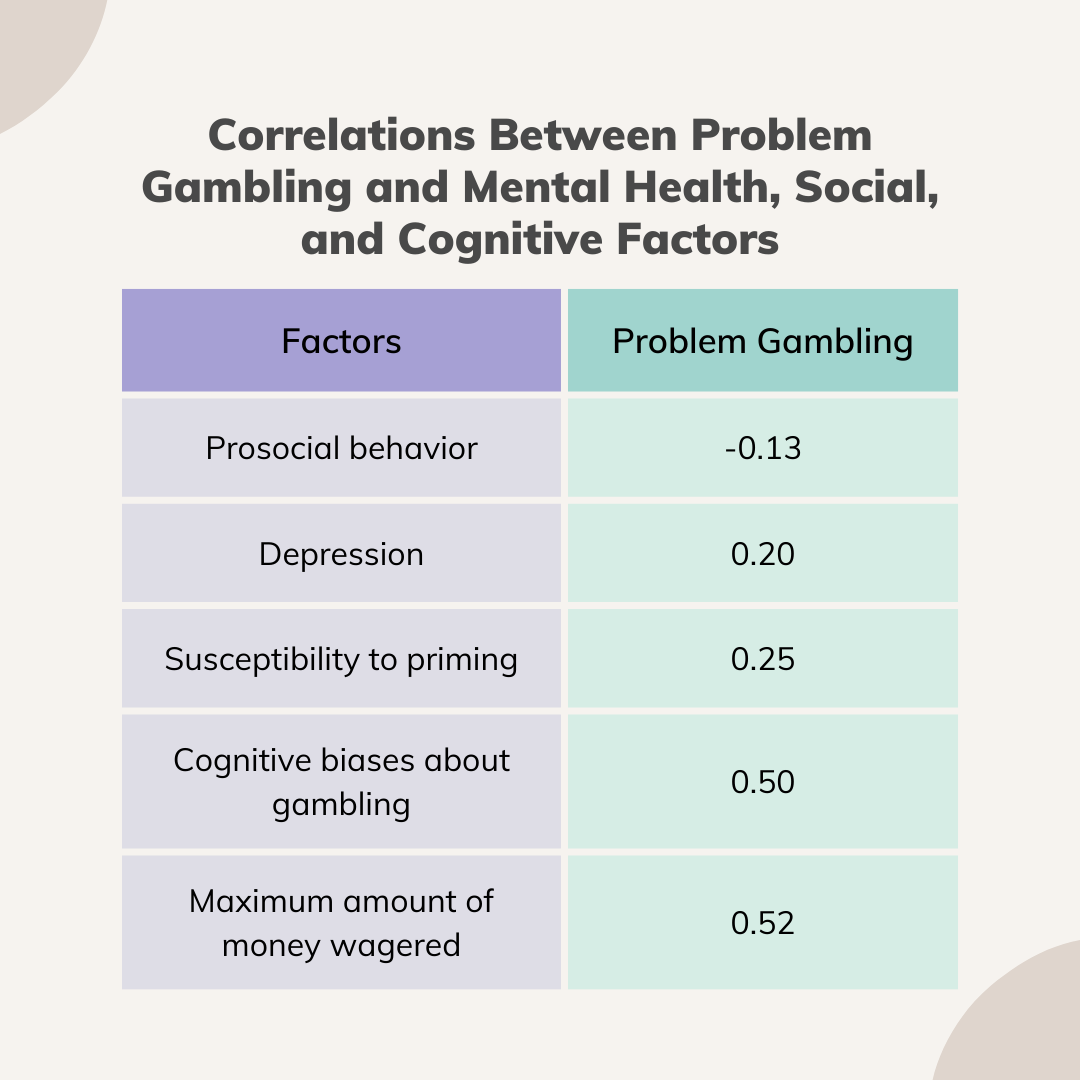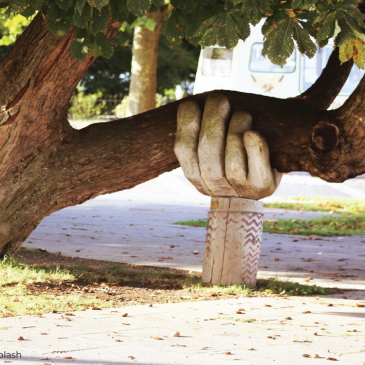People with Gambling Disorder are more likely to experience clinical and health-related problems such as depression. People experiencing problem gambling might also be less likely to engage in prosocial behavior, potentially because they are singularly focused on their own gambling. They might also be more easily “primed” or conditioned by cues (e.g., seeing slot machine symbols, hearing clinking coins or chips) after exposure to positive experiences associated with gambling, which might make them more likely to continue gambling and experience problems. This week, The WAGER reviews a study by Javier Esparza-Reig and colleagues that examined relationships between problem gambling, prosocial behavior, and responses to priming, as well as well-known risk factors (depression and cognitive biases).
What were the research questions?
(1) Is problem gambling negatively associated with prosocial behavior? and (2) Is problem gambling positively associated with depression, susceptibility to priming in general, cognitive biases about gambling, and the maximum amount of money a person has wagered on gambling?
What did the researchers do?
The researchers recruited 258 students aged 18 – 26 from a university in Spain. To measure problem gambling, participants completed a Spanish-language version of the 20-item South Oaks Gambling Screen. Participants reported the maximum amount of money wagered on gambling at a single point in time and also completed measures of depressive symptoms, prosocial behavior, susceptibility to priming, and cognitive biases about gambling. To assess their susceptibility to priming1, participants completed a priming task that involved making decisions about economic issues. The researchers used Pearson correlations to analyze the relationships among these characteristics.
What did they find?
There was a statistically significant negative relationship between problem gambling and prosocial behavior (see Figure). This result indicates that higher levels of problem gambling were associated with lower levels of prosocial behavior. On the other hand, problem gambling was positively associated with depression, susceptibility to priming, cognitive biases about gambling, and maximum amount of money wagered.

Figure. The correlation coefficients for problem gambling and several mental health, social, and cognitive factors. Correlations are ranked from smallest to largest. Values closer to 0 indicate a weaker relationship, while negative values closer to -1 indicate a stronger negative relationship and positive values closer to +1 indicate a stronger positive relationship. All correlations were statistically significant. Click image to enlarge.
Why do these findings matter?
The findings add more evidence to the notion that people with Gambling Disorder may be at increased risk of experiencing other psychopathological conditions, including depression. However, people experiencing problem gambling might also be more susceptible to social problems and priming effects, which can contribute to continued experiences of gambling problems. Thus, it is important to develop comprehensive prevention and intervention programs that include resources for improving social and cognitive wellbeing (e.g., mindfulness), in addition to mental health resources.
Every study has limitations. What are the limitations in this study?
This study was based on a small sample of university students in Spain, so the findings about problem gambling and psychosocial factors might not be generalizable to other demographic groups. The percentage of participants who scored in each range of the South Oaks Gambling Screen was not reported, so it is unclear whether the sample was disproportionately high (or low) in gambling-related problems. This study also primarily used self-report measures, so the results might be affected by social desirability and other biases.
For more information:
Individuals who are concerned about their gambling behaviors or simply want to know more about problem gambling may benefit from visiting the National Council on Problem Gambling or Gamblers Anonymous. Additional resources can be found at the BASIS Addiction Resources page.
— Annette Siu
What do you think? Please use the comment link below to provide feedback on this article.
________________
1. Priming refers to being unconsciously influenced to act a certain way after being exposed to a certain prompt or stimulus, such as a word or image. For example, if someone is shown the word “doctor”, they will usually be able to identify more words related to medicine shown immediately after, such as “nurse”, as opposed to other non-medical-focused words. In this case, people experiencing problem gambling might be more susceptible to priming because they might be more strongly influenced by cues or stimuli to gamble, such as lights, sounds or smells associated with gambling.




